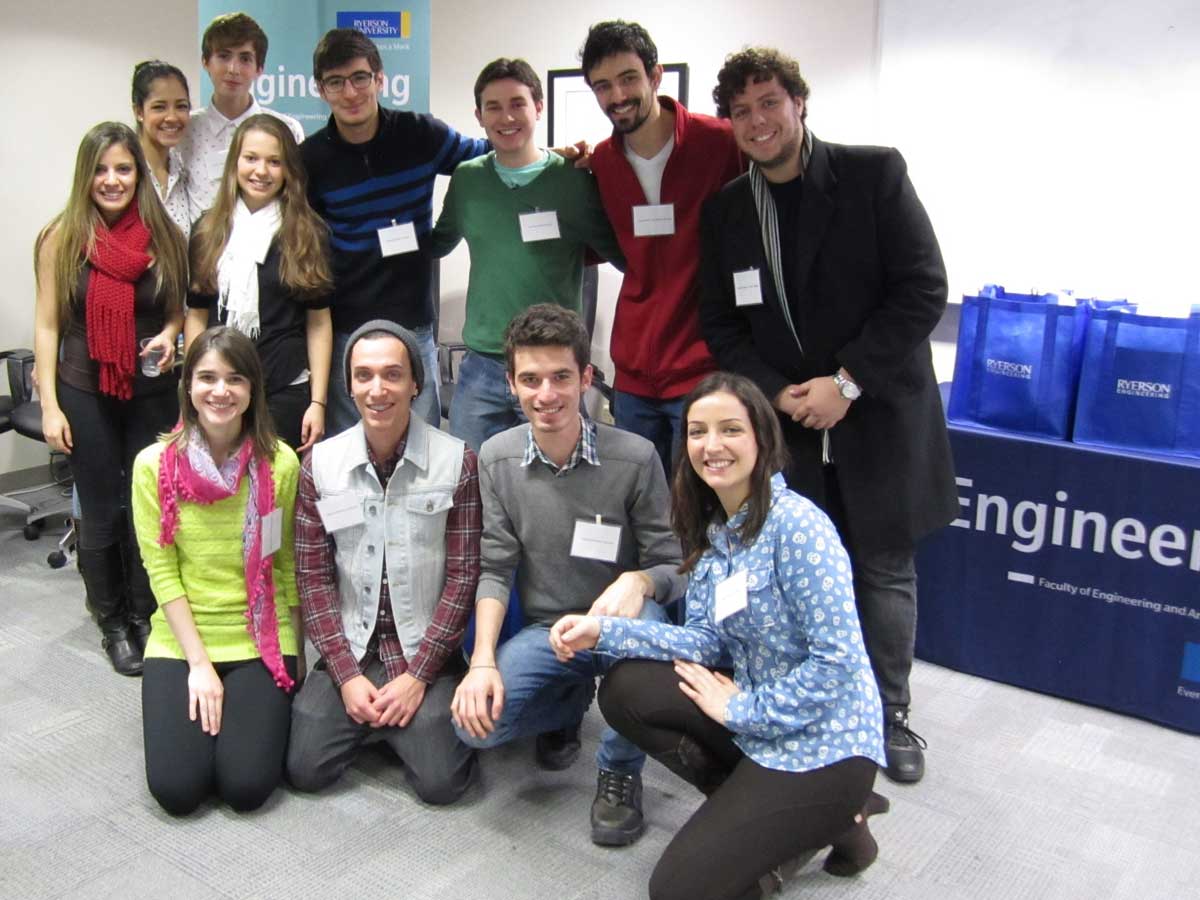International students learning across borders

Photo: The Faculty of Engineering and Architectural Science hosted a reception in November 2013 welcoming Brazilian students enrolled in the Science Without Borders program.
Brazilian students on campus are having a tougher time acclimatizing to the Canadian winter than studying engineering courses.
The international students are studying at the Faculty of Engineering and Architectural Science (FEAS) through the Science Without Borders (external link) program. Science Without Borders was launched in 2011 by the Brazilian government with the goal of sending more than 100,000 Brazilian students to study internationally in the areas of science, technology, engineering and mathematics. The aim is to address labour market needs in Brazilian sectors and at the same time, brings academically strong scholars to Canadian universities.
Since the program's inception, FEAS has hosted 41 Brazilian students in the engineering and architectural science programs, where they spend two study terms and then complete one research/internship term.
Electrical engineering student Artur Lustre Goncalves and Henrique Wulff Al-Alam, industrial engineering, are getting a dual education in Canadian culture and Ryerson campus life. Born and raised in São Paulo, this is the first time Goncalves has left Brazil.
"Being in another country is a great experience," Goncalves said. "I appreciate the diversity of cultures in Canada. I'm trying to increase my academic knowledge here and have the opportunity to learn practical courses."
Goncalves says he's been lucky enough to take courses here that aren't available in Brazil, including completing labs. At first a scary concept to him, he's come to appreciate labs as a valuable learning tool. Goncalves will be at Ryerson until August 2014, after which he'll return to Brazil to complete his undergraduate degree. Unsure of his future plans, he's keeping his options open between graduate school and beginning work right away.
"If someone has the opportunity, they should take the Science Without Borders program," Goncalves said. "To study for one year in another country – you'll learn a different perspective of how to solve problems, study and teaching methods plus the experience of living in another country is good for personal growth."
Wulff Al-Alam always heard Canada was model of education. He says international experience is valued in Brazil because it shows "you have an open mind."
Similar to Goncalves, Wulff Al-Alam appreciates the resources available on campus. Something as inconsequential as the cafeteria, he says, is great as a space for students to gather, eat and study in between classes. He says Brazil and Canada are similar in terms of academic content but physically, universities in Brazil don't have the infrastructure to allow student life to thrive.
This is Wulff Al-Alam's first taste of independence, having never lived on his own before. Although he has moments of missing his family and life in Brazil, he's learning many new things.
"At home you live in a bubble but going abroad you see how big the world is and challenges everyone goes through," he said. "The personal growth is incomparable. You become a better person from the experience. Everyone should have the opportunity to leave home and go outside their comfort zone."
Science Without Borders is open to undergraduate and graduate students, who are funded by the Brazilian government. For more information, please visit www.canadainternational.gc.ca/brazil-bresil/study-etudie/swb-ssf.aspx?lang=en (external link) .